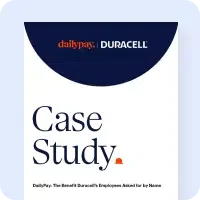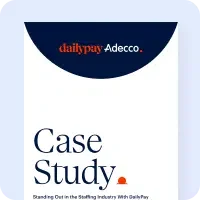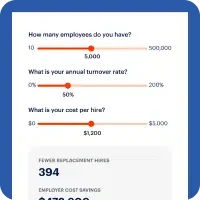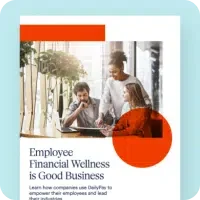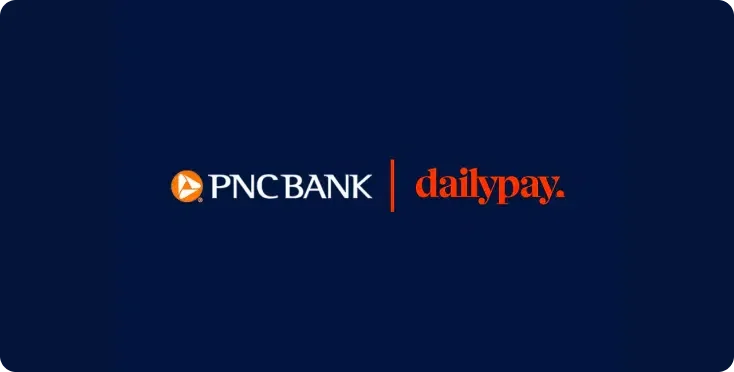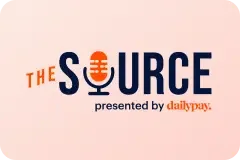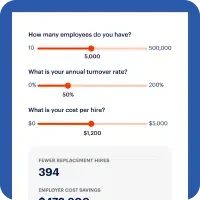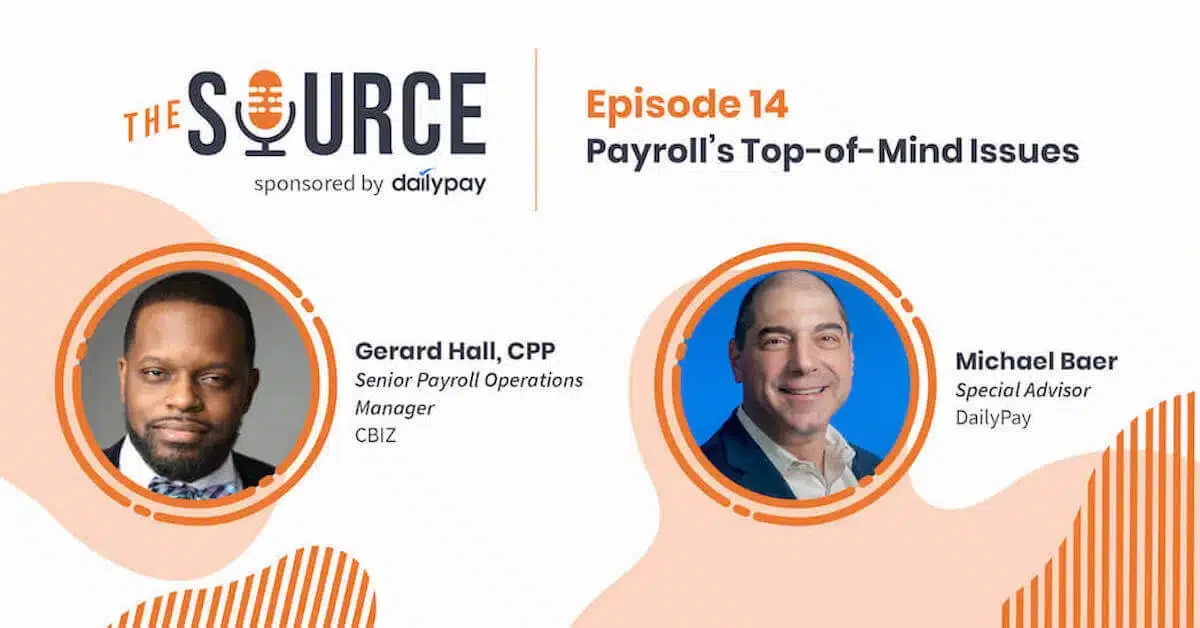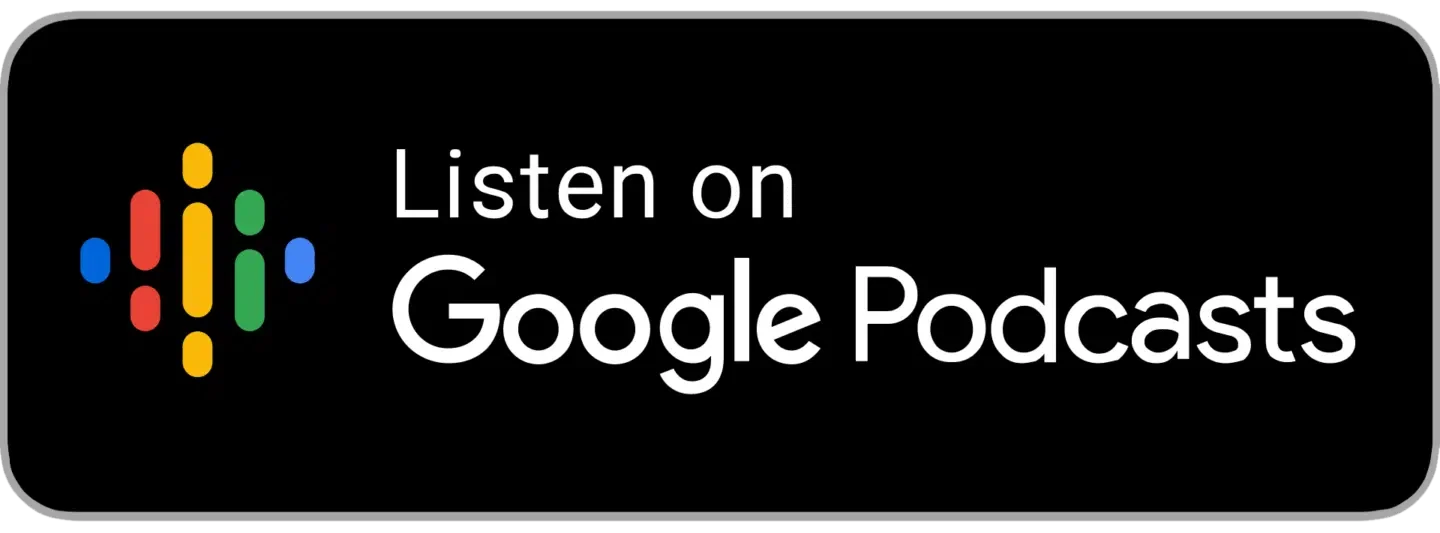Payroll professionals have been swamped with new and revised requirements and dramatic changes to processes and procedures in the past year. Just getting through year-end was extremely challenging, but with that done, concerns remain across all aspects of payroll operations. Listen as “That Payroll Guy,” Gerard Hall, CPP, senior payroll operations manager for the Human Capital Management division of CBIZ, discusses many of the topics that are still keeping payroll professionals awake at night, and provides guidance on how to work through them.
About Our Speakers

Gerard Hall, CPP, is the senior payroll operations manager for the Human Capital Management division of CBIZ in Roanoke, Va., and has more than 15 years of on-the-ground experience in working with payroll and benefits. With the American Payroll Association, he serves on the Volunteer Hotline, the Board of Contributing Writers, the Education Grant Committee, and the Social Networking Committee.
He is the Registration Chair for the Virginia Statewide Payroll Conference and is an active member of the Southwest Virginia APA Chapter.
Separate from CBIZ, Gerard established “That Payroll Guy, LLC” to focus on educating people on the intricacies of payroll as well as keeping those within the industry of relevant regulatory updates and changes.

Michael Baer is the host and executive producer of The Source podcast. Michael previously oversaw domestic and international payroll news and analysis at Bloomberg Tax, previously BNA.
In a career spanning three decades, Michael transformed the role of managing editor, becoming an information services leader who managed every aspect of world-class global products and platforms, while continuously increasing revenue and achieving market-best customer satisfaction. He directed a team of editors and writers who were charged with translating complicated tax and labor laws into English so non-lawyers could easily understand and apply them, and was integral in organizing and placing that content on easy-to-access web platforms, resulting in the highest net promoter scores the company had seen for any of their offerings.
Michael has been a frequent public speaker for conferences and webinars, and now is the host of The Source, sponsored by DailyPay. Michael joined the DailyPay team in 2019.
In this podcast you will learn about…
- What are considered the major payroll issues of the day
- Ways to navigate the changes made as a result of the pandemic
- The importance of payroll networking and engagement – attending events, even virtual ones
- What payroll professionals can expect in the coming years
About this podcast and transcript:
Welcome to The Source, the definitive destination for timely and informative regulatory updates and issues in the on-demand pay industry.
The Source is brought to you by DailyPay, the industry leading provider of the daily pay benefit and pay experience.
This material is for general information only, and the views expressed herein reflect only the views of the participants. This program should be considered marketing material and should not be relied on as legal, tax, accounting or regulatory advice.
And now, let’s welcome our host, Michael Baer.
Michael Baer:
Hello everyone, and welcome to The Source. The Source is sponsored by DailyPay and provides insight into active and upcoming legislation impacting payroll and the on-demand pay industry. And with special guests, we help clarify issues surrounding the on-demand pay access and the pay experience. Today, we welcome… Well, let’s just say some know him as that payroll guy on social media. He’s Gerard Hall, CPP. Gerard works for a Roanoke, Virginia based service provider called CBIZ. He’s their senior payroll operations manager. He and I will discuss how payroll professionals have been swamped with new and revised requirements and dramatic changes to processes and procedures since the COVID-19 pandemic started. There also is this issue of maintaining connections in the payroll community, and Gerard’s very involved in that, the need to network and meet, and how to navigate in this climate, to stay up on new trends and applications. Gerard, welcome.
Gerard Hall:
Thanks Mike. Thank you for having me. I’m glad to be here and to talk through a lot of these great subjects that you have planned for today.
Michael Baer:
Yeah. Well, great. Let’s get started. Just getting through year end, it was extremely challenging for payroll this season, with an alarming number of new requirements and processes that had to be put in place. Now that year end is officially “over,” I can say, I think, what are the issues payroll professionals are turning their attention to?
Gerard Hall:
I like how you emphasize “over” because you know it’s really not over. So as far as the deadlines and things of that concern, of course, 1099-NECs and W-2’s have had to be filed by February 1st this year, since January 31st fell on a weekend, but it ain’t over as they say in the South. It’s a lot going on, and then of course, with the extension of the different acts that we had to do because of the coronavirus and the COVID-19 pandemic. We’re just getting started. So there’s amendments to do and things to look back and retro. While we say over, and we’d love to look to the future, especially after last year, we still have quite a bit to do there.
Michael Baer:
When you say retro, you’re saying that there’s still a lot. Is there a lot more retroactive types of tasks that you’re having to do because of these new provisions?
Gerard Hall:
Well, potentially. As you know, there were the three major COVID-19 relief package. One being the employee retention credit, where that allowed employers who had a significant decline in gross receipts to be able to get credit for paying employees. In essence, getting a forgivable loan within the payroll of saying, “Okay, I’m paying this person up to 5,000 and then I get a credit on my tax deposit.” Then you had, of course, the opportunity for employers not to have to pay their social security employer portion until the next two years. Then you had the Families First Coronavirus Response Act, which for those who needed to take extended leave or ended up catching COVID or taking care of somebody with COVID, they were able to get credits. All of that stuff was supposed to end December 31st. So we were like, “Okay, December 31st is here. We can finally put our systems back to where they are.”
Gerard Hall:
Then here comes the extension. When it comes to the employer retention credit, now employers are able to go back retro, for those who took out a PPP (Paycheck Protection Program) loan, because previously, if you took out a PPP loan, you couldn’t do the PPP loan and get the employee retention credit. Well, now you can. So a lot of clients are going back and trying to get those additional credits because there are still companies that are still suffering and not doing well. As far as FFCRA (Family First Coronavirus Relief Act), that’s been extended voluntarily. So the mandate has been taken off, but clients and employers are still able, as long as they fall into that 500 employee threshold, to give credit for the wages that they pay out for people who need to take the extended leave due to COVID-19.
Michael Baer:
So let’s start with that social security deferral then Gerard, in terms of this year, what employers are having to do this year with that, because there were two deferrals, actually. There was that employer one that’s actually part of the act, and then there was President Trump’s announcement and directive that employers could defer the employee portion of the tax from September 1st to December 31st, 2020. So you had two kinds of deferrals, and deferral means you’re paying those amounts later, right? You’re paying them at some future date for liabilities that were accrued in 2020.
Gerard Hall:
Exactly.
Michael Baer:
So what does that mean for payroll professionals in 2021?
Gerard Hall:
Good question. As far as that particular deferral is concerned, let’s start with the social security employer one, the one that came out first. That of course, that fell under the CARES Act, which allowed employers to not have to pay their 6.2% portion. Into your point, deferrals, which when I think of referrals, I think of my student loans. It was great when I first got to college. I could defer to them. It was like, “Yes,” but that means I still have to pay them. So as far as that’s concerned, the amounts that were deferred for the social security, 6.2% is now going to be cut up in chunks to where you have to pay at least 50% of what you deferred by the end of this year, 2021 and the remaining portion within 2022.
Gerard Hall:
We’re still up in the air because we haven’t heard anything just yet as far as how to repay them, because we have some employers who are ready like, “Okay, let’s go ahead. We’ve got money,” or some companies did better than they expected, so the deferral was more a fail safe. But now they’re like, “Okay, I’ve got the money. I’m ready to pay,” but the IRS isn’t ready just yet. So we’re still in limbo waiting to see how that works. Now, the executive order deferral on the employee side, that’s interesting because it came at the very end, and as you know in payroll, when things don’t happen at the start of a quarter, it gets us in a place like, “Okay, why is this happening as of September 1st? Could we have waited until October?” But that’s neither here nor there at this point, but the amount that employers who are elected while of course, if you are a government entity could not, you could not opt out.
Gerard Hall:
But for those who did opt in for the private employments, the amounts that the employees deferred on their 6.2% side has to be repaid back. It was originally the end of April, now it’s the end of the year. What that’s going to now do is keep the employer constantly tracking and make sure that they collect those amounts and then offering that W-2c’s, once the full amount of what should have been withheld at 6.2% actually takes place. So it’s a lot of tracking and a lot of moving pieces. While we would love to get past 2020, at least, I know I would like to get past 2020, we’re still having trickling effects because of the extension of these laws and some of the laws that do extend into future years.
Michael Baer:
Right. Well, and then you mentioned W-sc. Are you essentially saying that if the employer did defer on the employee portion of the social security tax and they have to make up through withholding throughout this year. That regardless if it’s all paid off, there’s going to have to be a W-sc for 2020? Is that right?
Gerard Hall:
Yeah, that’s correct.
Michael Baer:
Or is that 2021?
Gerard Hall:
No, for 2020, because their 2020 amount is going to show Box 4, which is the social security withheld amount, under withheld from the 6.2% of the subject wages. Basically, they got a W-2c that’s showing a Box 4 that’s less than 6.2%. Then once they repay back, they’re going to get a W-2c for 2020, which forces now an employee to have to amend their return to account for that. While the IRS has not… There’s no penalties as long as you make it by the end of the year, if I work with a tax provider or a CPA or somebody prepares and charges me to amend, that’s more money. At the end of the day, it’s like, “Thank you for helping me defer, but now I’ve got to spend money because I have to refile and amend my return.”
Michael Baer:
Wow. Okay. Well, let’s move on to another COVID-19 issue that’s part of the… That came into play under these new laws that were enacted in 2020. Paid sick leave. Some of these requirements have actually stopped for some employers and like you mentioned, primarily, these were those employers with fewer than 500 employees that were required to provide paid sick leave for COVID-19 illness or related. But the credit you said is extended. So tell us what’s going on here with that.
Gerard Hall:
Good question. As far as the act originally was set up is that it was going to allow for any time that was earned through or up until December 31st, 2020, because FFCRA is required for employers under 500. So they don’t get the option to say, “Okay, well, we’re not going to do it.” You don’t get that option. Because you don’t get that option, and now you do get the credit. So it was supposed to be…. Because at the end of the year, we thought we wouldn’t have to worry about… The question was, “Hey, if somebody is taking their 80 hours of COVID at the end of the year, but they’re not going to get paid till January, how’s that going to work?”
Gerard Hall:
Originally it was like, “Okay, well, it can trickle into the first quarter.” Well, that was cool. Well, now the extension is they have until the first half of the year. It’s not mandated for an employer. So if an employer says, “Okay, we’re too low on funds. We can’t honor this 80 hours,” there’s no requirement for them to do it anymore past December 31st, 2020. However, for those who do go into 2021 and pay those 80 hours or the extended paid family leave, which of course is up to 200 hours, those amounts can still be credited on as a tax deposit. So you can either file a 7200 (IRS Form 7200) retroactive or you can take it off, or decrease your federal tax deposit.
Michael Baer:
Okay. It sounds like, all right, the actual requirement to provide paid leave is gone.
Gerard Hall:
That’s right.
Michael Baer:
But if you do, you may qualify for a tax credit on those amounts that you paid sick leave as an employer.
Gerard Hall:
Correct.
Michael Baer:
But that’s only for until the beginning of this year, basically. You’re allowed to do it now to take the credit, but you have to pay the leave in order to take the credit. But you’re not required required to pay the leave anymore.
Gerard Hall:
That’s right. Yes. You’re not required required to take the leave.
Michael Baer:
To qualify for the credit, you have to pay the leave.
Gerard Hall:
That’s correct.
Michael Baer:
I’m getting it now. It takes me a little while.
Gerard Hall:
[inaudible 00:13:29] right?
Michael Baer:
Yeah. Speaking of, you mentioned the Paycheck Protection Program, the PPP, you said earlier. There’s some coordination here with what we just talked about, I know. What elements of the Paycheck Protection Program have most impacted payroll because that was extended?
Gerard Hall:
Right. Yeah. That’s been extended. There’s a new amount of money. So there are people who weren’t able to get it in the first couple of waves that are applying to get that amount. It definitely affects payroll more so from the reporting side, definitely because when it comes time to the forgiveness, because some of the ones who got in the first way, now, the banks are looking to look for those documents to make it a forgivable loan. So the 941s (IRS quarterly Forms 941) are important, their payroll registers. But then to your point is in order to keep things forgiven, you have to keep your payroll under that threshold. I believe it was 80%, 20% split at the very beginning when the Payroll Protection Act came. Now it’s 60%, 40%, meaning whatever we give you in this potential forgivable loan, you have to show that at least 60% of the amount was used to pay payroll.
Gerard Hall:
Okay? In addition to not just paying payroll, keeping people on the payroll. So it wasn’t like, let’s say you and I have a business, and then we had three other people. We’re like, “Okay, we’re going to get rid of the three people, take our PPP loan and make ourselves bonuses.” Yeah, that doesn’t work. In addition to the reporting that you’ll need for the forgiveness, keeping the payroll in a place to where you don’t fall under that safe harbor to where a portion of it becomes not forgivable, because now you’ve let go of too many people from the particular reporting bates in which they’re testing how many FTEs you had from this point to this point.
Michael Baer:
Yeah, you couldn’t just drop the employees and accept the money and still get the… Yeah.
Gerard Hall:
Although there was some great things and some interesting stories in the news of certain companies getting a PPP, and then some… There was one I read and I posted about, where this guy had gotten the PPP loan and then bought a Ferrari. I was just like, “I don’t think that’s what the government had intended.”
Michael Baer:
That was not the intent, was it? Yeah, definitely not. Moving on a little bit, but still in this whole issue, as discussed, we’d have had enough issues with W-2 reporting of special coronavirus provisions for 2020. I mean, there’s still this fallout from that. But I mean, 2021, do you have hope that IRS will maybe come through on some reporting guidance so that you’re not going to have to do a whole bunch of W-2c’s for 2021 either?
Gerard Hall:
Yeah. We really hope and as you may know, that there’s a monthly call with the IRS, that a lot of us payroll professionals sit on. It’s the first Thursday of every month, where we get to hear the forms and pubs, but the really good thing about that call is at the end we get to do Q&A. That’s where we get to voice our concerns for the, “Hey, I know you put out this great FAQ, but there’s some pieces missing and we need to make sure that we’re right, so that you don’t come and penalize us for our interpretation of a particular FAQ.” I do see more information, especially since a lot of the credits and relief packages are extending in the 2021.
Gerard Hall:
Hopefully, there’ll be some more intricate guidance, because I even recall the question of what should show in Box 14 of the Form W-2 for the FFCRA. Should it show 100% of what the earnings that were given or should it be less the deduction? And it’s because of the way the law is written. The IRS, I love them, but sometimes as we know, it’s like reading college Latin. It could be up to the particular interpretation. Hopefully with the mix of being able to have more of those calls with the IRS each month, and then them having time to actually now think through the packages that are out there and giving more clarification, hopefully we’ll see a lot more clarity for 2021 as to what is needed for the W-2.
Michael Baer:
Okay. Well, and then another issue from the pandemic centers around remote workers and you and I discussed this a little bit before the podcast. For payroll, it’s a multi-state tax quandary, of course. To me, and this is just my personal opinion, the existing structure of state administrative requirements surrounding this is unsustainable. Something has to be done to make state taxation more practically applied to workers out of state or workers whose work is being directed from another state. But in the meantime, we’re in 2021. What are payroll professionals having to do to manage this issue?
Gerard Hall:
Well, outside of pulling their hair out, it’s truly becoming a place where… It’s another thing that they have to keep up with unfortunately. A lot of employers that I’ve talked to and some of the conversations that you and I have had and others, it’s really to the point where we’re putting the onus on the employee, where if the employee decides, “Hey, I’m working remote, and now because I don’t have to go into the office every day, I’m going to move over to Hawaii.” Well, I wish I could do that, but whose responsibility is it to make sure that I’m now taxed in Hawaii? Back in the day when COVID wasn’t a common thing and even remote work in the payroll world, it wasn’t all that common, it was more so the onus of the payroll specialist to say, “Okay, well, you need to be knowing your… You need to be educating your supervisors that if you hear somebody moving, that they need to make that move.”
Gerard Hall:
Well, now everybody’s at home for the most part. Now it’s like, “Okay, how do we make sure that we communicate and stay relevant, but at the same time regulatory?” It’s very frustrating. It’s also frustrating because each state does something different. We had a lot of states who said during COVID, “Okay, we’re going to offer relief. We know they’re working remote in another state. Technically, if we weren’t having COVID, they would be in this state being taxed.” Some states decided, “You know what? Nope, that’s not how we play.” So we had to keep up with, “Okay, which state allows me to relief, which state doesn’t?” Then I feel like the more we go into this and for some in our industry, it’s now going to be a permanent thing where they are going to work from home remotely, permanently.
Gerard Hall:
Now the question is, when is the relief up? So it’s frustrating. Of course, each state has their difference because they all want their piece of the pie and making sure that they get the money that they need to keep the state moving. Hopefully, they will get to a place where there can be some type of uniform guidance for all 50 states, so that we can not have to worry about what each state does. But I’m not going to hold my breath on that. Not just because of nexus and things like that, but just because of how a lot of states don’t work together in regards to how they calculate things and report things in that nature.
Michael Baer:
Right. It’s a bigger issue than just on the payroll side and making sure employees are taxed as well as that, because you have this issue of business presence, now that many states require a company or an organization to register for tax purposes in the state, even if they have one employee working there. So a lot of.. And I know you’re down in Southern Virginia. So you’ve got a number of employers that we are working with that are in maybe Tennessee or other places, but a number of them are just Virginia, but they had workers coming from say, Tennessee, which is a non-tax state for employment tax, that is. Now, how does that play out for the business that has now a presence in Tennessee where they didn’t have it before?
Gerard Hall:
Yeah. The thing about it is it’d be great to just write a letter and say, “Hey, they’re only here now because of COVID.” But at the end of the day, the state says, “Hey, whatever money is coming in our state, we need a piece of the pie.” So that’s what’s really happening. It creates a nightmare for all involved, and then of course, if companies are working with a third party, they’re probably being charged more because now there’s more tax forms that this prepare is now having to perform. It’s a lot all around. I don’t see it getting better.
Gerard Hall:
Right now, because of everything going the way it is, some companies have just decided, “Hey, you know what? COVID taught us we really don’t even need an office. We’re going to let everybody work remote.” That sounds like a great idea, until you get into the taxation. Okay. Well, you do that. They now have SUI in wherever state they are. Especially if you’re… Like you said, I’m in Southwest Virginia. So an employee could be in West Virginia, they could be in Virginia. They could be in North Carolina, they can be in Tennessee. So now that changes the game depending on where their location is and creates more work for the payroll professional as if we don’t already have enough work to do.
Michael Baer:
Right. We know that. And when you said SUI, just for those that might not recognize, we’re talking about state unemployment insurance. Payroll is responsible for overseeing the contributions to a state where somebody is working. So when somebody relocates, there’s a whole process to determine whose state is actually going to be responsible for the unemployment so that employee then be let go. Which is a pretty big issue. But let’s stick to the remote theme here. But let’s switch a little bit to being a big part of the payroll community is networking and communication between peers. But this has had to change a lot now since the pandemic shut down in-person meetings and you had to deal with that directly as one of the organizers of the 2020 Virginia Statewide Payroll Conference, which was what you… You were forced to go virtual. A couple of questions here. One, how will the move to virtual meetings change as the ability to meet in-person returns? Two, it’s another dynamic. What are local and statewide event organizers like yourself doing to ensure there is more participation and engagement in these functions?
Gerard Hall:
Okay. To your point, yes, it has been a challenge and it has forced the payroll world and the chapters and the APA chapters of the like too. If you want to stay relevant and continue on you, we’ve got to do, and I think this word has been used at least a million times by me last year, pivot. Unless you just don’t meet at all, and of course that’s not the answer because then that just stops progress. It’s been a challenge, especially for people in our industry, because they’re so used to attending a meeting in person, being able to high five people and laugh and ask questions in a room, to where now we’re sitting behind a computer. We’re doing Zoom calls, we’re doing WebEx and things like that. So it did present itself a challenge.
Gerard Hall:
The local chapter definitely was the first one, in my opinion, to work with this pivot because they’re meeting usually on a pretty cyclical basis. Either every month, every other month, once a quarter for some of the smaller chapters, but it was okay, “If we want to keep revenue, number one and then people engaged, we’ve got to find a way.” I know the APA has partnered with Zoom, so a lot of the chapters have the Zoom accounts through the APA and are able to keep up with their meetings. It actually opens up the speakers that they can get because now I don’t have to say, “Okay, I need to find somebody who’s willing to travel to my area or my chapter because we meet in person.” I can ask somebody in California to come in and attend a meeting here in Roanoke, Virginia.
Gerard Hall:
So while there were some declines or some frustrations, or what have you of moving to a virtual, it does open up the opportunity. Now the statewide side made it a little more challenging because of course, statewide is usually a once a year process. A lot of, especially those who had mid to late summer statewides, they were like, “Okay, maybe it’ll be fine,” and they didn’t have enough time to pivot. Luckily for Virginia Statewide, which is where I am, ours is in October. So we actually had the time, and we used a platform that converted what we were going to use the app for, just for in-person. It allowed us to have the full conference within the app. So that was a game changer. But the problem now becomes, we’re hoping definitely by October, we should be back in in-person, right? Hopefully.
Michael Baer:
Yeah. I’m hoping but we were hoping before. I asked to put a little caveat to that one. Things are looking good, but I sure do hope we do have those opportunities restored somewhat. But yeah, that’s part of the second question. Once in-person meetings are now considered safe enough to conduct again, this totally changed our meeting environment now, meeting through Zoom and things like that. So how do you see the future of these local payroll chapters and the statewides panning out? Will there be some sort of a hybrid type of an arrangement or what?
Gerard Hall:
That’s a very interesting question. I’ll get on the hybrid one in a second because I try not to get on my soapbox for that one. But as far as the chapters and then keeping the engagement once we’re able to congregate together, I think of let’s step away from the meetings. Let’s think of work. Right now we tell people, “Okay, well you have to work from home because the office is closed.” Well, now if there was a position to where the numbers are down, cases are down, people are getting vaccinated and now we say, “Okay, let’s open the office. You have to return to the office.” People are like, “Wait a minute. But why do I have to turn to the office? I did so well for 11, 12 months at home. I just like to stay at home in my pajamas and put on a polo and look nice every now and then.” So I think the same thing’s going to happen, unfortunately with the chapters.
Gerard Hall:
It’s okay. We’ve done Zoom or WebEx for so long now, granted… I’m an extrovert. As soon as in-person is in, I’m there. But for the introvert or the person, who’s like, “Okay, I haven’t even returned to work, but I know we’re safe enough to be able to meet in person, but I liked the offering when you gave me.” So it is going to create some additional options and then some conversations being, and I’ll try not to get on my soapbox, but being a former learning and development manager, doing a hybrid is so difficult, and it’s because your focus starts teeter tottering. Let’s say you’re in a room with me, but then I have people in the Zoom. I’m going to be more prone to responding to your questions and responding to your knives and things like that because you’re right there in front of me, and then the person who’s in the Zoom feels somewhat slighted. At least that’s what we have noticed.
Gerard Hall:
So back in my L & D base, we said, “Okay, we’ll train the same thing, but we’ll have a virtual-only session and we’ll have an in-person only session.” I just think that it’s just how you have to cater to the audience. But to your point, things like a statewide where it’s once a year, well, we can’t say, “Okay, these two days are going to be in person here in front of us, and then these two days are going to be virtual.” So then the question becomes, does a hybrid option become available? They can become available, but I will tell you just from experience of facilitating any hybrid environment for the last several years, it makes it tough. So that’s another hurdle for the statewide and local chapters to have to go over.
Michael Baer:
Okay. Well, it’s going to be interesting how all this pans out.
Gerard Hall:
Agree.
Michael Baer:
It really will. So I’m going to ask you to put your prognosticator hat on right now. In a recent podcast I did with a former APA President, Linda Obertin and Dimitris Papageorgiou about the future payroll. They focused on technological changes and how payroll’s role in organizations has changed to become really a critical part of an employer’s overall strategy. From your perspective, where do you see the payroll profession heading in the next, say, five years?
Gerard Hall:
That’s a good question. I really hope that we see a huge technological advancement when it comes to the payroll industry. I don’t want to say we’re behind the curve, but we tend to… Even before COVID, we told people, “Okay, this is payroll. You have to be in the office. You can’t work remote.” Well, and that we had no choice for 10 plus months. So now it becomes, how do we stay innovative and relevant? Because what we don’t want to happen is for the payroll experts of the world to get up and say, “All right, we’re all retiring and we’re not filling in with the new up and comings.” It’s definitely going to create a… So technology for me, it has to be there. We have to be prepared. We have to, as we know, early access to wages is a thing.
Gerard Hall:
At first, I remember when we first started having conversations about it several years ago, there were people just like, “People just need to budget better.” It’s like, “Okay, that’s a great answer, but that doesn’t solve all the issues that we’re having today.” There was a stat that I was reading that I thought was pretty interesting that if somebody was offered the same salary, but one job offered early access and the other one didn’t, that they would take the one because you never know. So things like that. Technology being able to process payroll. I would love to live in Orlando and just be there forever and travel the world, but I still need my payroll check. So as long as I can access and process payroll anywhere in the world, that’s going to be huge. I shouldn’t have to come into an office and sit at a desktop in order to process.
Gerard Hall:
So if we can get our environments into a cloud-based to where we can do it wherever and whenever, so that way if the wifi goes down at the office or the internet goes down to the office, I can just go somewhere else and make it happen. For me, it’s all about the technology, so that we can remain relevant in the industry, so that we can get the up and comers who are looking at, “Okay, what do I do after I get this accounting degree?” To make sure that we continue to keep paying people.
Michael Baer:
Okay. Really, really compelling take there, Gerard. I wanted to… I got to ask you this stuff. I mean, that payroll guy, you were talking about being a thing, earned wage access, on-demand pay being a thing now in payroll. But that payroll guy, the thing I’ve seen you do on social media is, and let’s have a little fun with this, is you post some really cool memes that are payroll related. I just wanted to ask, what are some of the most… First of all, maybe there’s just an issue you would wish to have a meme about that.
Gerard Hall:
There’s always room for memes. I love a good meme. I send them to my friends all day long, even those who aren’t in payroll. So memes are just a way to capture… They say a picture’s worth a thousand words. So rather than typing it out or typing my frustrations, it’s like, “Let me find a great photo, throw a caption on there, and now it’s a meme.” I’m a visual person, as you probably know, but it’s nothing like a good meme. It’s just nothing like a good meme.
Michael Baer:
Okay. Well, that’s great. Well, I think on that note, why don’t we close this discussion down. I want to thank you so much for your thoughts on all these issues that are top of mind right today for payroll professionals.

